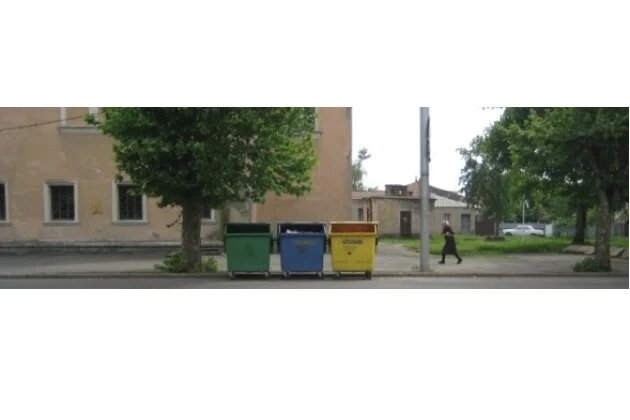
The waste management system available in Georgia does not meet international standards, waste collection and disposal systems are not well-developed in the country; waste is not recycled and used as a secondary resource. None of 63 landfills available throughout the country today meet sanitary and ecological requirements.
On 19 May 2010, the Heinrich Boell Foundation, within its Wednesday Public Debates Program, hosted a discussion on the theme - Waste Management: Modern Challenges. The following experts were invited as the speakers: Alverd Chankseliani – The Head of the Department for the Management of Waste and Chemicals of the Ministry of Environment and Natural Resources, Kate Gujaraidze – Political Analyst, the Association Green Alternative, Rezo Getiashvili – The Coordinator, the Network of Caucasian Environmental NGOs. The debate was moderated by the journalist Zviad Koridze.
According to Mr. Chankseliani, the Georgian authorities are planning to build a new landfill in Tbilisi in the nearest future; the Ministry has already issued permission for an environmental impact. A segregation zone and an allocation of the place for the hazardous waste, as well as draining and gas supply systems are considered in the project. The new landfill in Tbilisi is planned to be constructed on the territory near Lilo. It is also planned to construct a new Rustavi-Gardabani landfill on the territory of Akhali Samgori near Rustavi. Works are also underway in Ajara.
Chankseliani underlined that there are also problems from the legal point of view. There is no law on the waste management in Georgia. Though, according to Chankseliani, a serious work to improve the existing legislation is underway. He mentioned that the European Union provided financial support for starting a project envisaging the development of the waste management practice and a national implementation plan for Georgia. In the nearest future, an implementation of the Twinning project will begin, envisaging the development of a database on waste.
According to the Green Alternative, it is a serious problem that competencies are not divided between the central government and the self-governances. Due to that, all municipalities face the same problems. Municipalities at the local levels do not have financial or technical resources for the waste management.
Experts and participants underlined an importance of involving public in the process of decision-making, also an importance on behalf of the citizens to become proactive and cooperate with the civil society and the authorities for solving particular problems facing their communities.